Calamine Lotion for Acne: Does it Work?
Learn how to use your trusted calamine product to relieve inflamed and irritated skin.
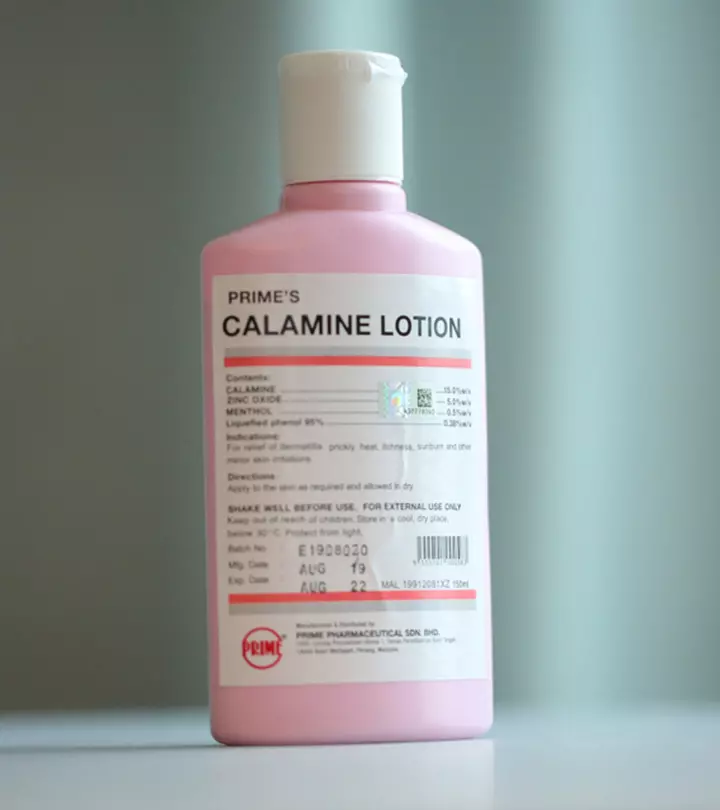
Image: Shutterstock
Calamine lotion is a complete savior. It works perfectly well for several skin issues, starting from hives to cuts, zits, pimples, and scares. But how about calamine lotion for acne? Well, medical and research communities appear to be against it. Recent dermatological studies have suggested that the role of zinc-based calamine lotion in treating acne is unclear and needs further studies (1).

In this article, we will explain what calamine lotion is, its properties, whether it helps treat acne and blemishes, some key precautions to consider, and many more. Keep scrolling!
 Trivia
TriviaIn This Article
What Is Calamine Lotion?
Calamine lotion is zinc oxide or zinc carbonate-based preparation. It has been used in cosmetics, sunscreen, dusting powder, shampoos, and dermatological creams and ointments (1), (2).
Variations of calamine lotion have been used over the years to soothe and dry weeping rashes from poison ivy and other poisonous plants (3). The active component of calamine lotion, zinc oxide, has also shown antimicrobial activity (4). The lotion, therefore, has been used to treat zits, warts, and mild to moderate acne (1).
Key Takeaways
- Calamine lotion has antimicrobial, anti-inflammatory, anti-aging properties.
- It is one of the most common ingredients in skin and hair care products.
- Studies suggest that it may help relieve acne symptoms like itching and scarring.
- It is said to be ideal for spot treatment of acne, but further studies are needed on its effectiveness.
Key Properties Of Calamine Lotion
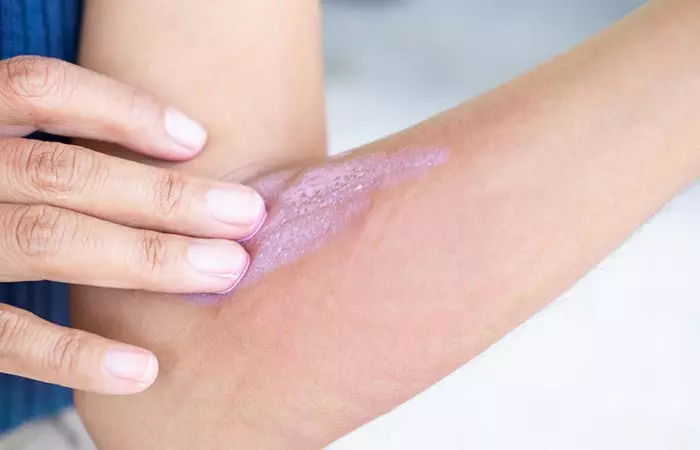
Thanks to zinc ions, the calamine lotion has a bunch of cosmeceutical benefits. A few noteworthy ones are (1), (2), (4):
- Mild astringent: Heals bleeding or damaged tissues
- Antipruritic: Relieves itching and irritation
- Anti-inflammatory: Reduces inflammation by controlling histamine and other mediators
- Antimicrobial: Fights certain strains of bacteria and fungi
- Photoprotective: Shields skin from harmful components of sunlight
- Anti-aging: Improves elasticity in aging tissues
- Scar-reducing: Manages most types of scars (hypertrophici A scar that is thicker, broad, and raised and forms where the skin is damaged, appearing when there is strain surrounding the wound. , keloidi A raised scar caused by an unnatural increase in the amount of scar tissue that develops on the site of the wound. , acne, burns, etc.) by controlling collagen production
Known more popularly for its cooling and soothing effect, Calamine lotion benefits extend to potent anti-inflammatory, anti-allergy, and scar-reducing properties. Hence, it is being increasingly used to treat acne vulgaris and rosacea.
Acne treatment with the traditional calamine lotion has not been well-accepted and proven yet. Read the following sections to understand whether this approach actually works.
Can Calamine Lotion Treat Acne?
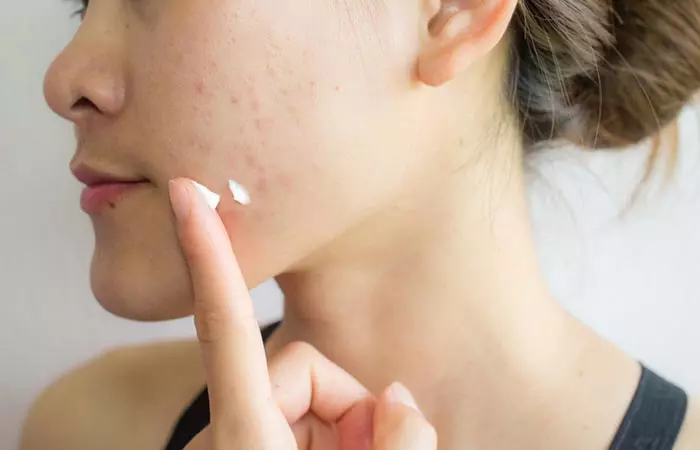
Acne vulgaris is caused due to uncontrolled sebum secretion, clogged skin pores, and bacterial (Propionibacterium acnes) infection. Those affected, especially adolescents, show signs of moderate to severe inflammation (5).
Redness, painful and bleeding bumps, irritation, itching, and pus-filled blistersi A painful bump on the skin that is frequently fluid-like in nature and is brought on by a burn or friction. are a few characteristic symptoms of acne. The most common approach to treat acne has been using antibiotics. However, several traditional non-antibiotic regimens have shown equivalent results (5).
Topical formulas like calamine, benzoyl peroxide, and tretinoin are used to augment oral antibiotic courses. The sulfur and zinc content in calamine has shown to reduce inflammation. In a 2010 study, about 60% of acne patients that received such a treatment achieved good to excellent results (5).
Zinc ions in calamine lotion control the production of histamine, a pro-inflammatory chemical, in skin cells. They also soothe itching and irritation caused by histamine production in the affected areas (1).
However, the exact mechanism of zinc, particularly in acne mitigation, is not well-studied or researched yet (1).
A blogger shared the effectiveness of using calamine lotion for a month in their blog. They stated, “ Using it regularly, redness was reducing, and pimples were shrinking. Because I didn’t have large mounds pulling upwards on my skin, my face started to look and feel a lot smoother with dramatically less bumps than I was used to (i).”
Scroll down to the next section to know more about the uses of calamine lotion for acne.
How To Use Calamine Lotion For Acne
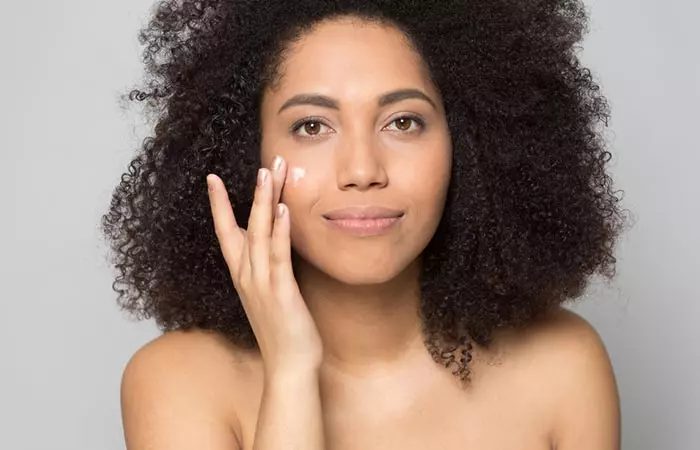
Current research suggests that calamine lotion may not address the underlying cause of acne. So, applying it topically as a spot treatment would only help relieve the itch and scars. Its astringent effect may dry out the puss-filled zits.
The antimicrobial property of zinc in calamine is considered to be effective against P.acnes infection. But there is not enough evidence to support or demonstrate the effect of calamine lotion on acne (1).
Therefore, it is best to use this topical lotion only to manage itching and irritation associated with acne.
 Quick Tip
Quick TipDoes Calamine Lotion Have Any Side Effects?
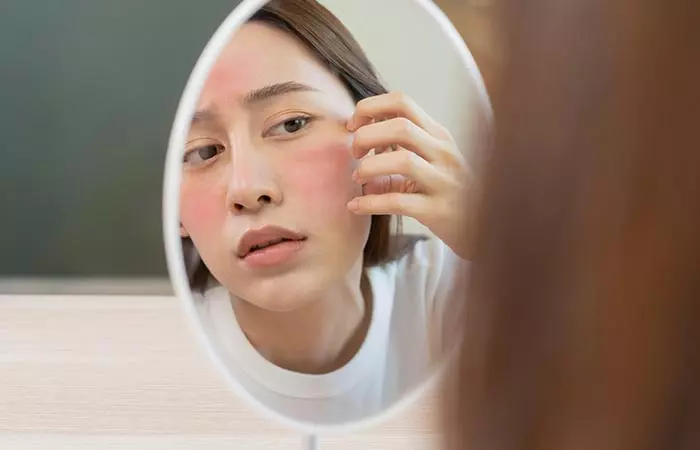
The dermatological applications of calamine lotion are attributed to its active ingredient, zinc. Despite showing excellent results on skin conditions, particularly acne, zinc-based therapy is not favored and practiced enough (1).
No major side effects associated with calamine lotion have been brought to light in scientific studies. However, the combination of calamine and diphenhydramine has been shown to cause contact dermatitis (2).
The following mild to severe signs have been linked to calamine lotion but have no supporting evidence:
- Rashes/Hives
- Redness
- Itching
- Peeling skin
- Inflammation (stinging sensation)
- Swelling on face, tongue, or throat
- Troubled breathing
If you observe any of these symptoms after using calamine lotion, please visit your healthcare provider.
Who Should Avoid Using Calamine Lotion? What Precautions Should You Take While Using It?

- If you have had one or all of the above-listed symptoms upon using calamine lotion in the past, it is best to stay away from it. If you are using it for the first time, conduct a patch test to check for any allergic reactions. Apply a small amount to the inside of your wrist or behind your ear and wait for 24 hours. If no adverse reaction occurs, you can safely use calamine lotion on the affected area.
- You should also inform your healthcare provider or doctor about such sensitivity.
- Calamine lotion may not be suitable for use on infants and babies below 6 months of age (3). However, there is no concrete scientific consensus about this.
- This lotion is meant only for external/topical use. If it gets into the eyes, mouth, or nose, use water to wash it out immediately.
- Calamine lotion leaves a thin film on the skin. It may stain fabrics and surfaces in close contact. Make sure you wait for the lotion to get fully absorbed.
- It may not be safe to use this topical treatment on deep cuts and open skin wounds. Ask your physician before using it to avoid ill effects.
While we have covered who can and should use calamine lotion, let us also see whether an expecting woman can use this lotion in the section below.
Can You Use Calamine Lotion While Pregnant?

Yes, a pregnant woman can use calamine lotion. A majority of dermatologists have labeled calamine lotion as safe for use during pregnancy. But it is also possible to have an allergic reaction to the lotion and experience skin problems like rash, inflammation, and itchiness. Hence, a patch test is always recommended before topical application. Even though calamine lotion is safe for external use, it should not be applied to any open wounds or broken skin. Moreover, if you are breastfeeding as well then ensure to consult your doctor before using the lotion and follow their expert guidance.
Calamine lotion is a great remedy for skin irritations. Learn how to apply it and get the most out of it in this informative video. Watch now to unlock its soothing potential!
Infographic: Top 7 Benefits Of Calamine Lotion
While you might be aware of Calamine lotion’s efficacy in treating mild itchiness, have you ever wondered about its other benefits and how it might become your ultimate skin savior? If yes, check out the infographic below to know more about this potent component’s advantages and how it can help your skin in various ways.
Some thing wrong with infographic shortcode. please verify shortcode syntaxCalamine lotion is a popular over-the-counter topical skin treatment. It has been used to treat various dermatological conditions ranging from minor to severe issues. On the other hand, calamine lotion’s role in treating acne has received little research and evidence. According to current research, it may not address the underlying cause of acne, but it may help in soothing irritated skin. As a result, using it topically as a spot treatment will only assist in reducing the itching and scarring. Its astringent properties may help to dry out pus-filled zits. So, think twice the next time you are advised to apply calamine on acne-affected areas – your skin may require more.
Frequently Asked Questions
Why is calamine lotion pink?
Calamine lotion contains iron oxide which gives it its characteristic pink color.
Does Lacto Calamine remove blackheads?
Lacto Calamine contains zinc which has antimicrobial properties that may help in the management of blackheads (7).
How long should I leave calamine lotion on?
You can leave on calamine lotion for as long as you need to. However, those with sensitive skin should keep it on for a few minutes before rinsing it off.
Is calamine lotion an antibiotic?
No, calamine lotion is a topical anti-itch lotion that helps in relieving itching and many other skin issues.
What is the difference between Lacto Calamine and calamine lotion?
Lacto calamine is a type of calamine lotion that contains zinc which helps in relieving itching and may prevent acne.
Is calamine good for oily skin?
Yes, calamine lotion is a water-based formula that may absorb excess oil and unclog pores, making your skin soft and healthy.
Illustration: Calamine Lotion for Acne: Does it Work?
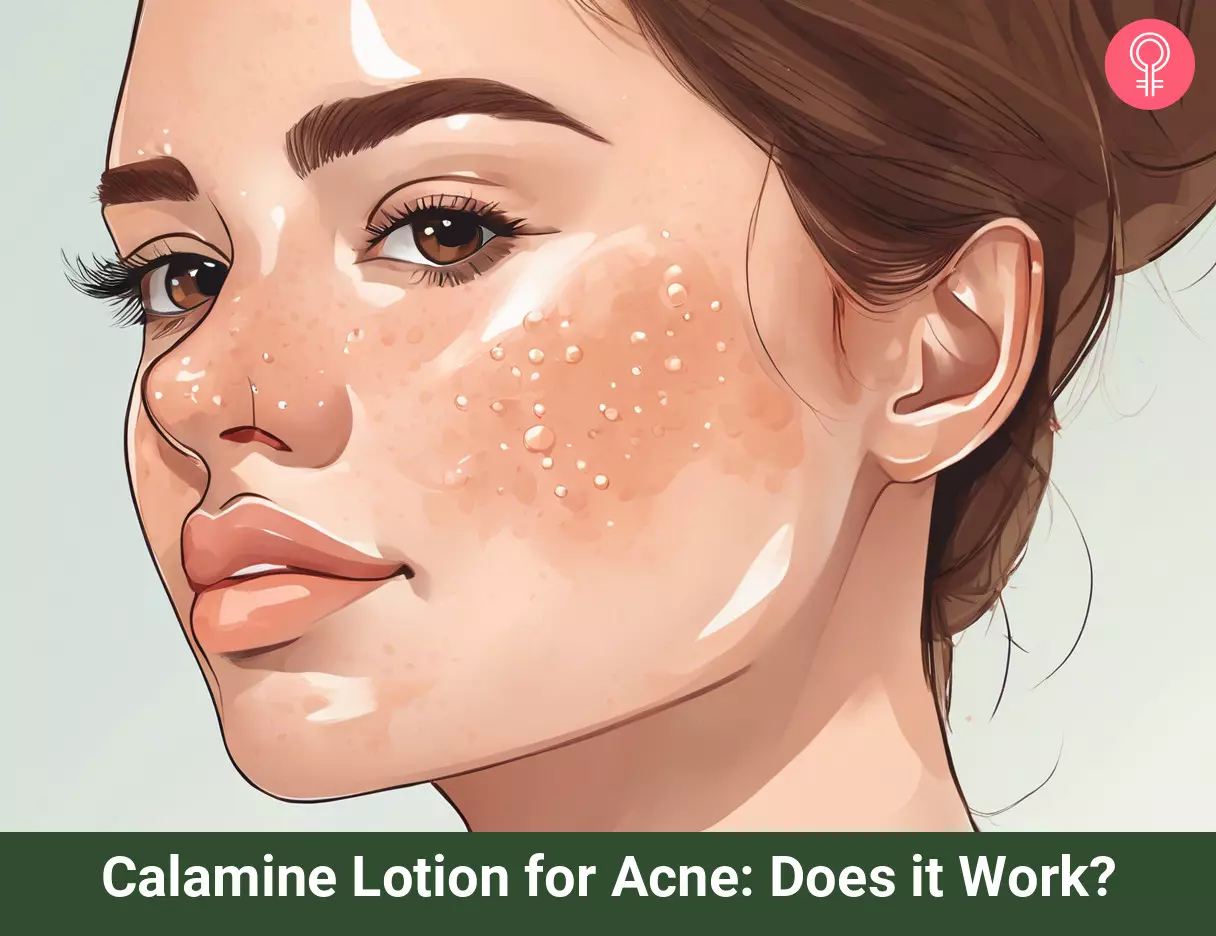
Image: Stable Diffusion/StyleCraze Design Team
Personal Experience: Source
StyleCraze's articles are interwoven with authentic personal narratives that provide depth and resonance to our content. Below are the sources of the personal accounts referenced in this article.
i. How I Finally got rid of my acne with Calamine Lotion, Sleep, and Garlichttps://thebesthomeremedyforacne.wordpress.com/2013/12/19/how-i-finally-got-rid-of-my-acne-with-calamine-lotion-sleep-and-garlic/
References
Articles on StyleCraze are backed by verified information from peer-reviewed and academic research papers, reputed organizations, research institutions, and medical associations to ensure accuracy and relevance. Read our editorial policy to learn more.
- Zinc Therapy in Dermatology: A Review,
https://www.ncbi.nlm.nih.gov/pmc/articles/PMC4120804/ - Allergic Contact dermatitis with exfoliation secondary to calamine/diphenhydramine lotion in a 9 year old girl,
https://citeseerx.ist.psu.edu/viewdoc/download?doi=10.1.1.590.2587&rep=rep1&type=pdf - Outsmarting Poison Ivy and Other Poisonous Plants,
https://www.fda.gov/consumers/consumer-updates/outsmarting-poison-ivy-and-other-poisonous-plants - The contribution of zinc ions to the antimicrobial activity of zinc oxide,
https://www.sciencedirect.com/science/article/abs/pii/S0927775714005172#screen-reader-main-content - Oral Antibiotics in Acne Vulgaris: Therapeutic Response Over 5 Years,
https://www.ncbi.nlm.nih.gov/pmc/articles/PMC4170416/ - CALAMINE- calamine and zinc oxide lotion,
https://dailymed.nlm.nih.gov/dailymed/drugInfo.cfm?setid=61929c97-bd6b-0d7c-e053-2991aa0aa571 - Role of zinc in acne: a study of 77 patients,
https://www.researchgate.net/publication/326399842_Role_of_zinc_in_acne_a_study_of_77_patients
Read full bio of Dr. Sreekar Harinatha
Read full bio of Swathi Handoo
Read full bio of Anjali Sayee
Read full bio of Swathi E






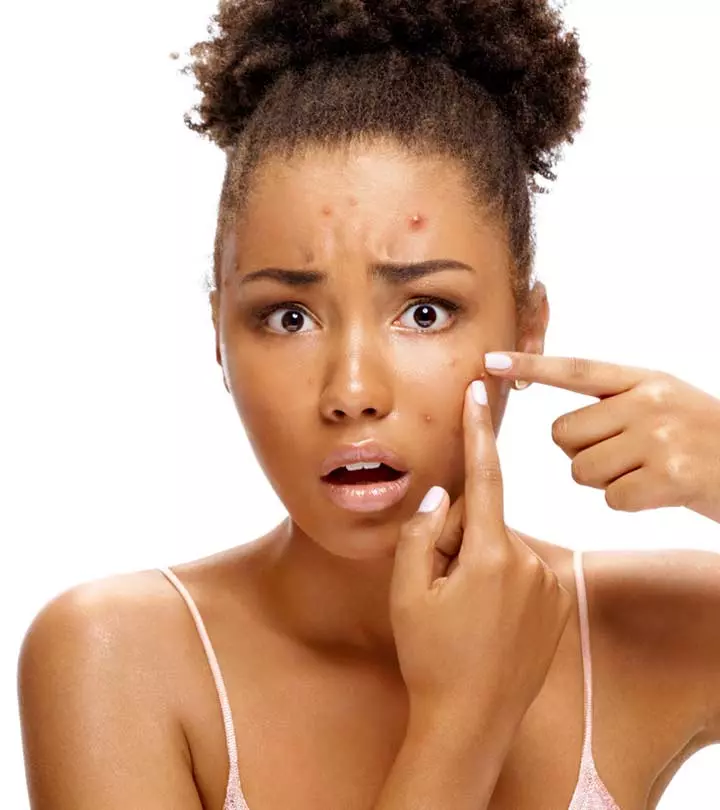

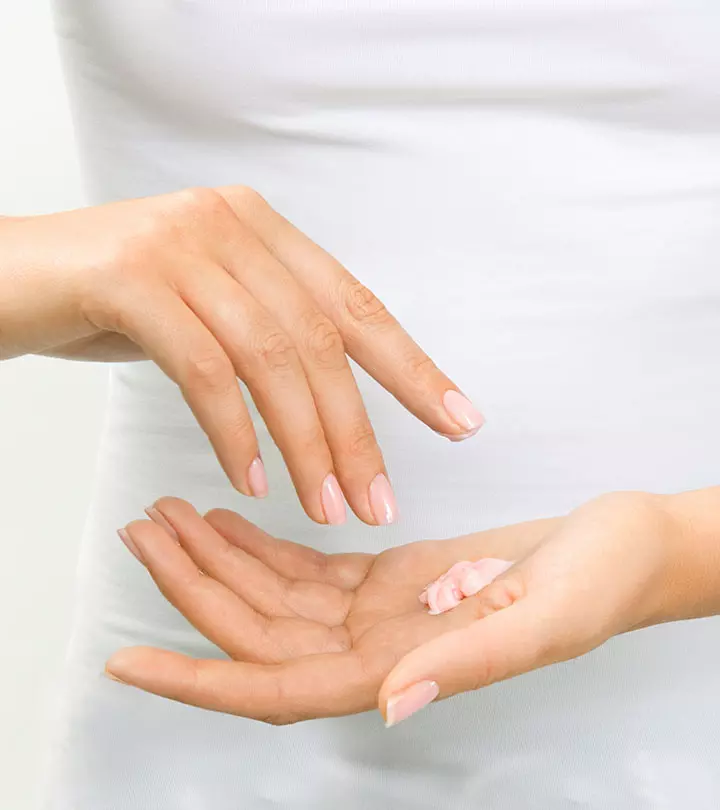
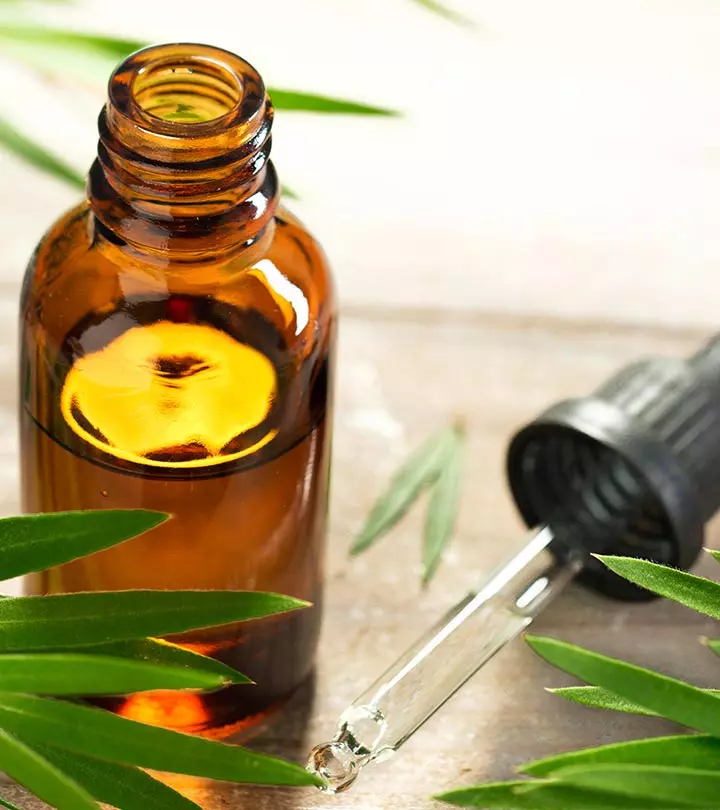
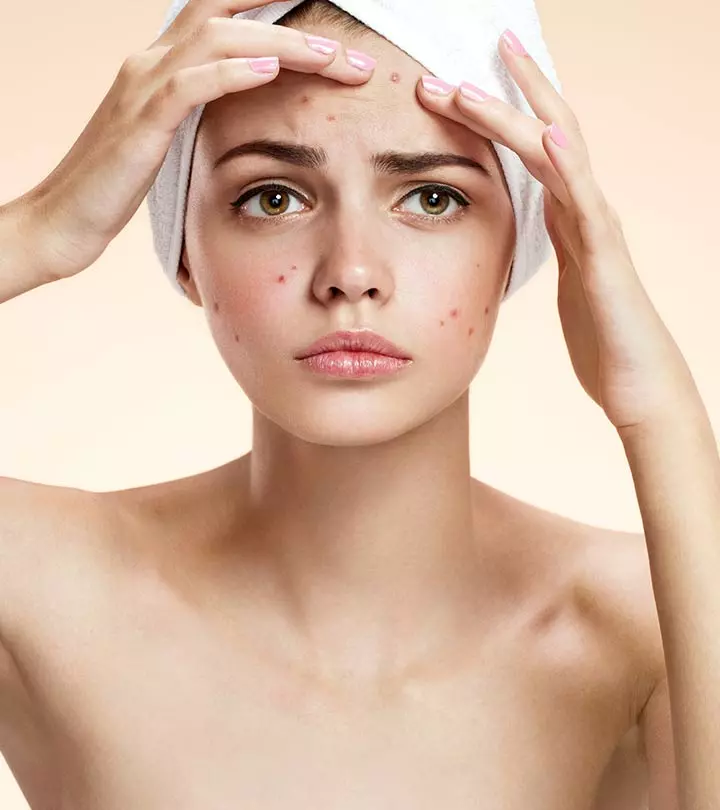

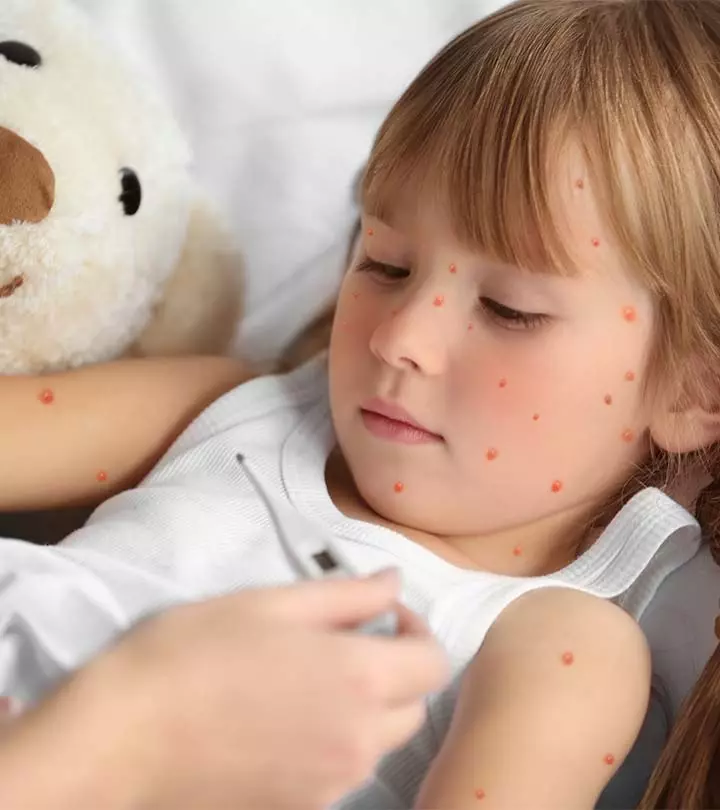
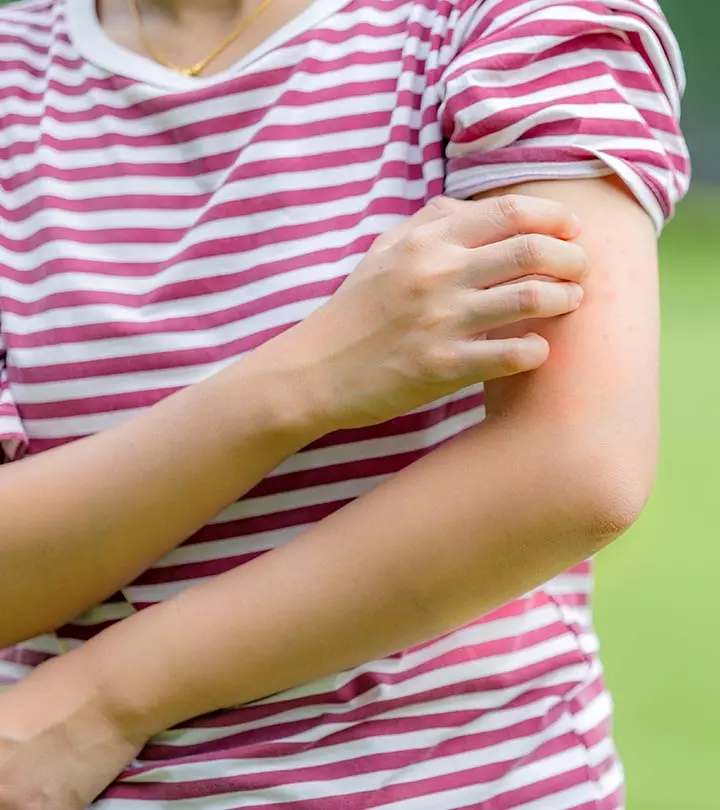
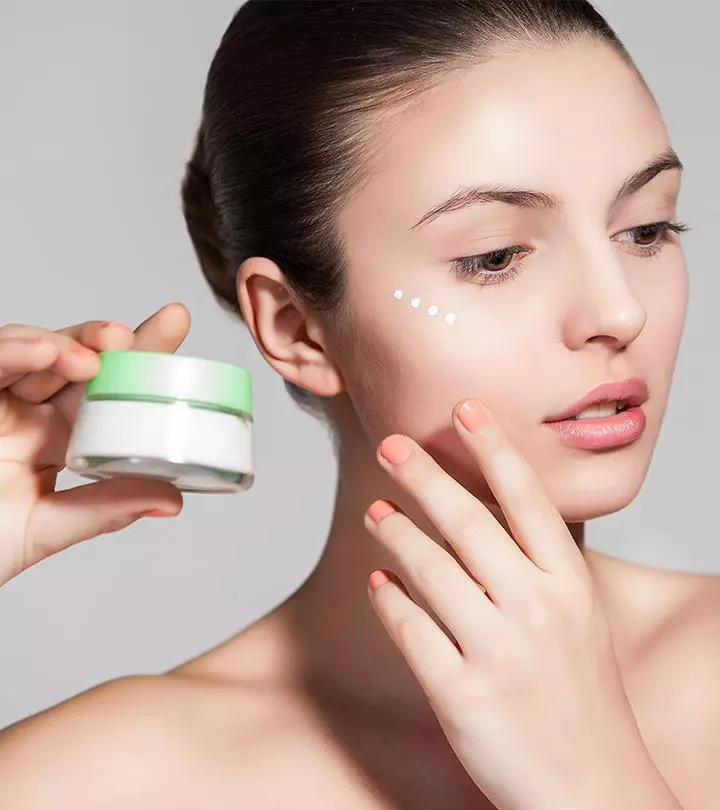

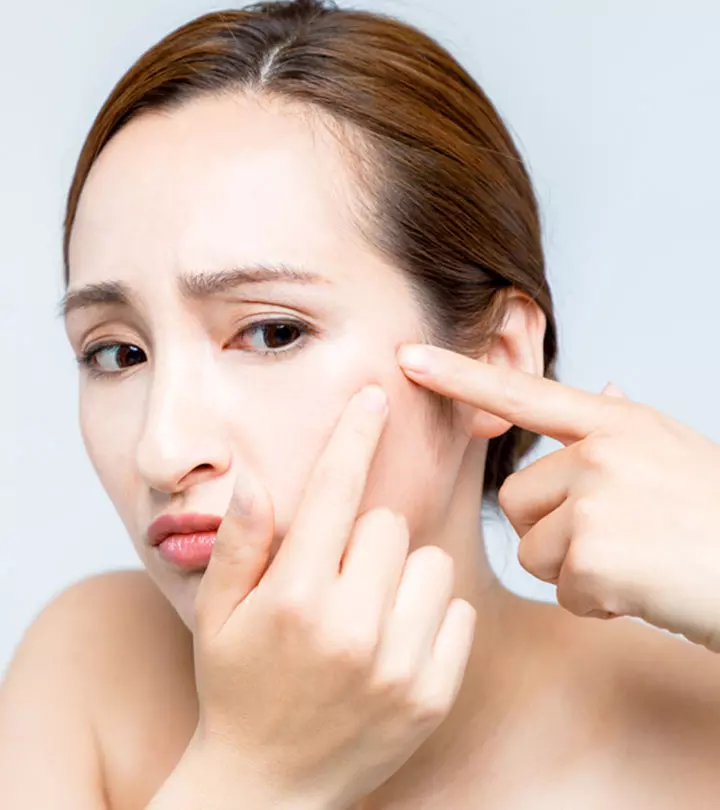
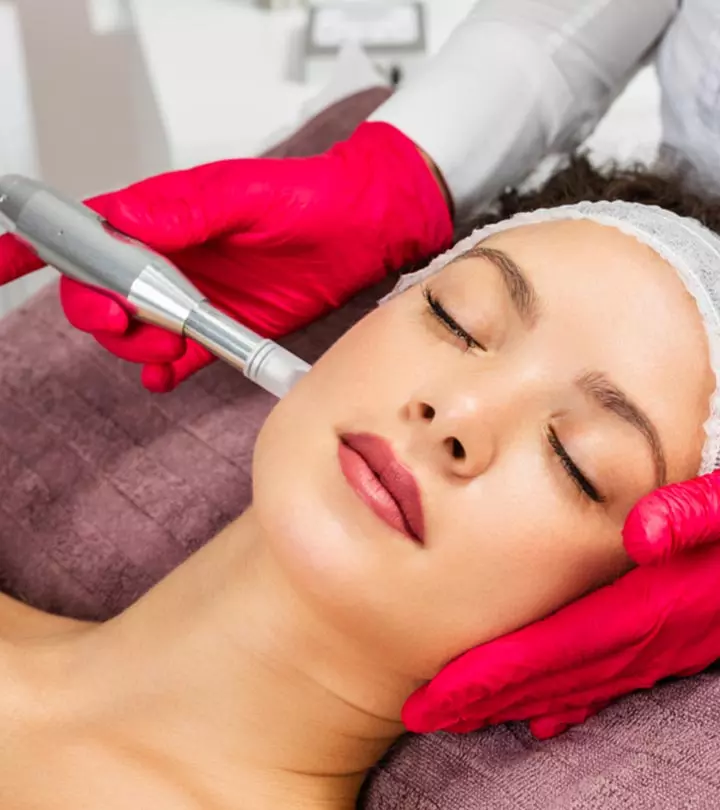


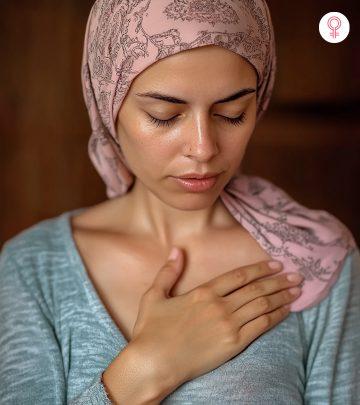


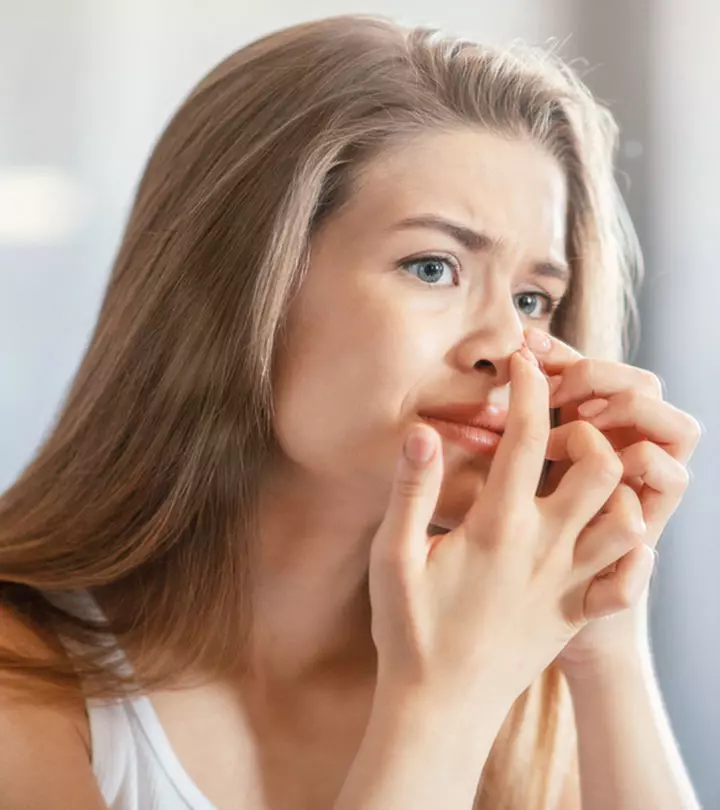
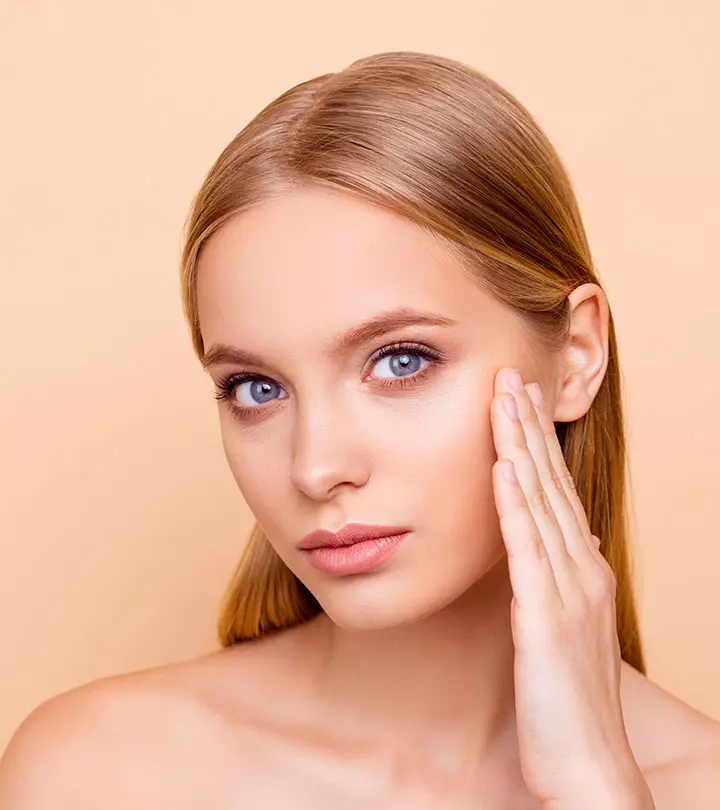


Community Experiences
Join the conversation and become a part of our empowering community! Share your stories, experiences, and insights to connect with other beauty, lifestyle, and health enthusiasts.